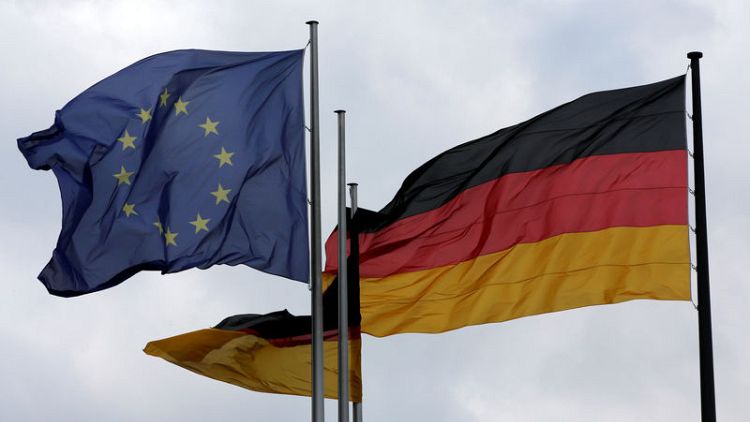BERLIN (Reuters) - Inflation in Germany's most populous regions remained above the European Central Bank's target in November, data showed on Thursday, supporting the central bank's case for a gradual reversal of its monetary stimulus in the euro zone.
With price pressures building in the euro zone, the ECB last month confirmed its plan to end its 2.6 trillion euro ($3 trillion) bond-buying programme at the end of this year and raise interest rates for the first time since 2011 sometime after next summer.
The ECB's goal is to keep inflation in the euro zone close to, but just below, two percent a year.
The annual inflation rate in Germany's most populous state, North Rhine-Westphalia, was unchanged at 2.4 percent, preliminary regional statistics office data showed.
This is the highest reading since October 2011.
In Bavaria, the second-most populous state, and in Baden-Wuerttemberg, the third, annual inflation was measured at 2.7 percent after 2.8 percent in the previous month.
The state inflation readings, which are not harmonised to compare with other euro zone countries, feed into nationwide data due at 1300 GMT.
A poll conducted before the release of the regional data suggested Germany's harmonised consumer price inflation (HICP) rate would slow to 2.3 percent from 2.4 percent in October, which was the highest reading since February, 2012.
The euro zone will publish preliminary inflation data for November on Friday. The headline figure is expected to slow to 2 percent after 2.2 percent in October.
(Reporting by Joseph Nasr; Editing by Mark Potter)



